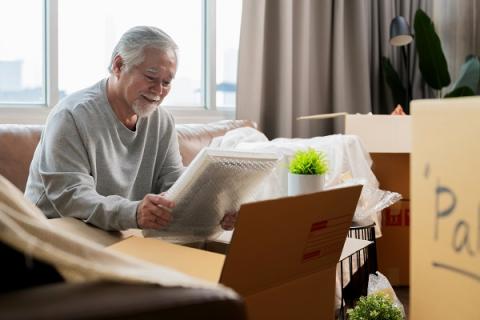Leave Behind Memories—Not Stuff
Research has shown that when we help others, we help ourselves. One study found that volunteers have euphoric feelings during and weeks after volunteering; even thinking about it later reengaged the same euphoria. In her book “Altruistic Urge,” University of Michigan psychologist Stephanie Preston explains how the drive to help others in distress is part of our neurochemical makeup. So, if the why behind decluttering is to make life better for others, it makes sense that you may be more likely to stick to it.
Enter: Swedish death cleaning. The name may seem harsh, but the process is gentle. This Scandinavian tradition of decluttering is intended to benefit your loved ones after you die by dealing with your possessions while you are alive.
Made popular by Margareta Magnusson’s “The Gentle Art of Swedish Death Cleaning” Swedish death cleaning is a way of life based on Swedish cultural traditions. Swedish people considered it rude to impose on others—even after death. As the author explains, “One day, when you’re not around anymore, your family will have to take care of all that stuff and I don’t think that’s fair.”
The process is straightforward and does not need to be rushed; you do not need to complete it in a weekend or even a week. Nor should you wait until you are older; you can begin the process at any time.
Start small and be consistent. Declutter one drawer at a time, or one shelf, or one corner of a room. Make one decision at a time.
Take pleasure as you go through your items. Feel the emotions as they come up. Happy or sad; old or recent. Find the meaning and memory.
The next part is key and ties into why this approach could be more sustainable. Ask yourself “Will anyone be happier if I save this?” and declutter accordingly.
Of course, you can also ask family, friends, and other loved ones what they like and might want someday. This discussion will clear up any confusion or doubt that may occur later.
The possible benefits of Swedish Death Cleaning include increased happiness by renewing focus on relationships, less stress through an organized space, and an acceptance of mortality. You can make it easier on your loved ones by reducing your possessions now and in the process, make your space easier for yourself to live in.
